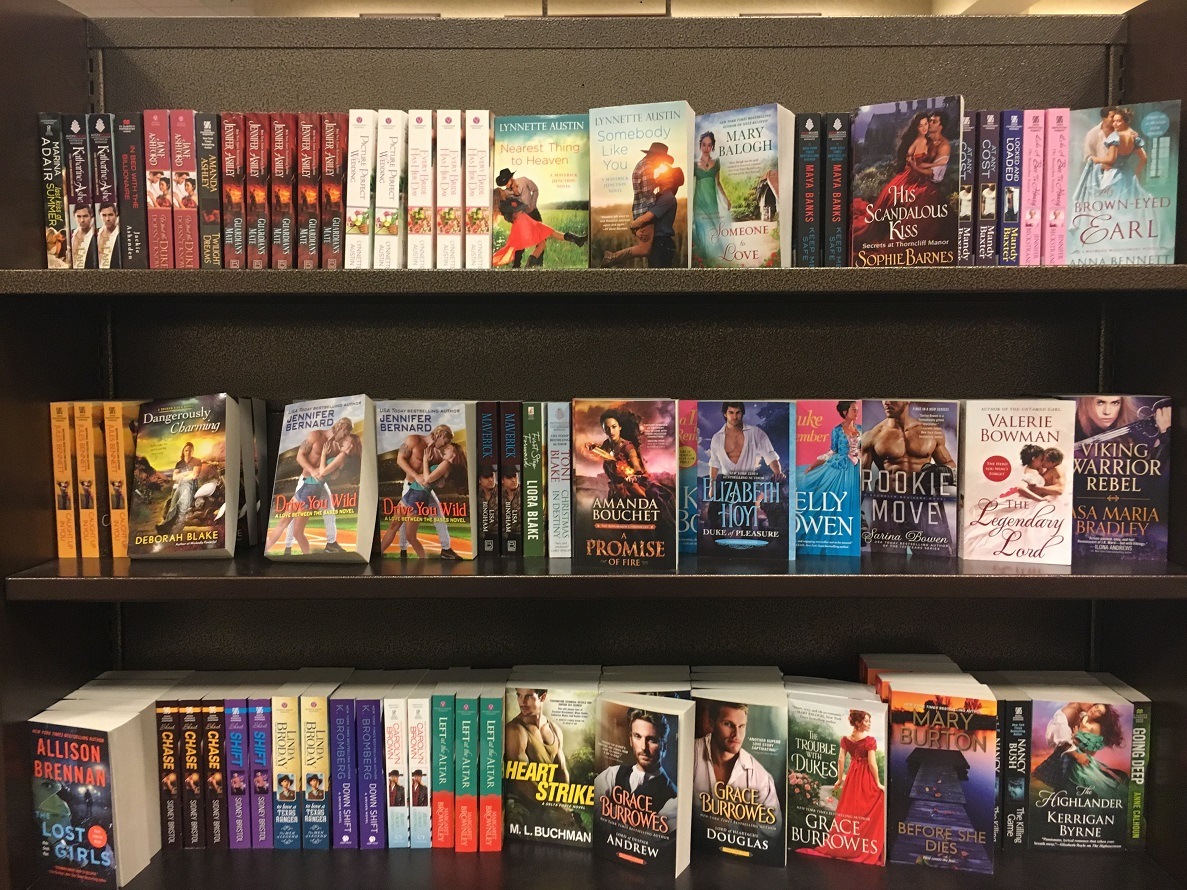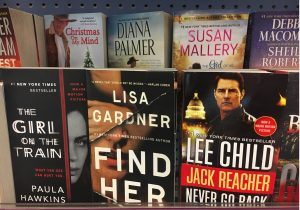
Before I decided to take the leap in to self-publishing, I tried to get my novel published by one of the Big Four only to receive a slew of rejection letters. Perhaps my work wasn’t good or perhaps there was something wrong with me (there was). But perhaps due to financial and social factors the legacy publishing industry is seriously compromised—seriously cucked—creating an almost impenetrable barrier for men who want to present novels with traditional masculine perspectives sans the usual political correctness. Authors like Wilbur Smith, can still get their work out there due to a bestselling track record (he’s been around since Ian Fleming actually wrote James Bond novels) but for new guys? No chance. How did it get this way?
Corporate Consolidation
The Big Four (basically companies that still PRINT and bind physical books and actually pay you for your work, giving a work at least mild prestige) have the same problems as the Hollywood studios. Due to being bound to the accountants of their corporate overlords (Simon & Schuster is owned by CBS, HaperCollins by NewsCorp, Penguin Random House by Bertelsmann & Pearson and Hachette Livre is a French multinational) they are bound to making a profit, therefore bound to trends, bound to what’s popular, bound to what people are spending money on in the current moment.
Nothing wrong with addressing consumer demand. If they like toasters, give them toasters. But creative works aren’t dishwashers, tires or earmuffs. But the companies try anyway, they have shareholders to answer to after all. They follow trends because there’s really nothing else to follow; the need to turn profit is too great and the overhead is too high. A book launch has practically become like a Hollywood production in terms of budget.
Due to the rise and appeal of self-publishing, the Big Four have to dangle the carrot of a big advance, which lessens the amount of books they choose to publish, then they have to spend big bucks on marketing said book. Since there isn’t a large pool of books to hedge against (a successful novel offsetting the failures), since the days of backlist bestsellers are dead, almost every book needs to be a home run of some sort. So, if one book about teenage wizards sells, you will see a glut of books about kids endowed with supernatural gifts (Harry Potter begat Percy Jackson which begat Miss Peregrine’s Home for Peculiar Children and on and on).

Not books but BRANDS
It’s like what Ayn Rand wrote of architecture in The Fountainhead: “It was not necessary to design buildings any longer, only to photograph them; the architect with the best library was the best architect. Imitators copied imitations.” (Doubtful The Fountainhead would have been published today)
Literary Agents
But legacy publishers don’t want to spend too much time and money vetting everything that comes through the turnstile. They have literary agents to do this for them. The literary agents are the pimps of this trade but unlike real pimps—who have to resort to deceit and/or forced coercion to lure in their hookers—the agents have the luxury of the whores begging them for a place at the table.
They don’t have to go looking for material—it comes to them! Because every agent knows that if an aspiring novelist wants to see their book on the Barnes & Noble bookshelf (preferably at the front of the store), they need an agent to present their works to the publisher. They know they have the keys to the gates.
That’s why there’s websites and articles and panel discussions at writer’s conferences regarding how to write the perfect query letter to agents. Some authors spend a couple of weeks on their beseeching letter. If you’re lucky, in about two months you’ll get a form reply thanking you for sending them a sample of your work but unfortunately it just isn’t for them (“While I think this has potential, I’m sorry to say that it isn’t quite right for my list.”).
A Corrupted Culture
An obvious sign of a feminine run business—most literary agents are women—nobody wants to come off as mean or judgmental. No, everyone wants instead to be seen as grateful and courteous. No one wants to get in to anyone’s bad graces after all…
But why? What’s wrong with burning a few bridges? Because there’s less and less bridges to burn. The byproduct of this is everyone being scared of everyone else because there is less pie to pass around. If I anger this executive today, I might not be able to make ends meet tomorrow. Consolidation in a business run mostly by women and beta males has created an environment of political correctness and groupthink. They’re committing “liberalcide” (thanks to Stefan Molyneux for that great word). It’s no wonder then there’s no surprise or outrage when you see an agent say: “If your story concerns a straight, white, male then I’m not interested,” (real quote).
So the poor economics has resulted in subsequent cultural decay (or cultural decay has resulted in poor economics). Liberal gender politics are playing a crucial role in a business model in decline. But rather than to reflect and set a correction course, they’ve doubled down, and now the business is cannibalizing itself. This ever more consolidated business is only looking for something that will cast a wide net, make them a lot money, but at the same time virtue signal to the correct groups while hopefully appealing to as many critics as possible to bring them prestige so they can pat themselves all on the back for thinking or promoting the right thing. Meaning they have to find the most generic and least offensive shit possible.

Typical Drug Store Bookshelf
Please note that most of the edgy, politically incorrect material is produced by gay men (Bret Easton Ellis, Chuck Palaniuk and soon Milo Yiannopoulis). Milo pointed out on his podcast that gay men have “less to lose” than a straight man with a family; an accurate assessment in today’s easily offended snowflake culture. So what’s a straight white male author to do?
For adult work, if the lead is straight, the protagonist being another race helps (James Patterson’s Alex Cross). But if the main character is a straight white male, the best friend needs to be black, maybe Hispanic, but they prefer black (note the characters of Robby Jackson and Domingo Chavez in Tom Clancy’s books) or if the character is a loner he needs to help the appropriate disadvantaged groups (think Jack Reacher) fight typical villains (Corporate America or rednecks). If it’s an international spy thriller, the protagonist MUST question, maybe even refute the mission his country gave him because, hey, the U.S. is just as evil as her enemies (Robert Ludlum, Eric Van Lustbader etc.). Face it, successful contrived novels is a very narrow target to hit and it takes time to hone those skills.
Authors Looking To Score

This Could Be ME
But maybe it just isn’t the business and social conditions of the publishing industry that have a problem. Maybe the motivations for this type of author (myself included), the one who endlessly submits himself to this sort of literary panhandling, are wrong. It’s kind of like all those reality shows: American Idol, The Voice, Cupcake Wars, MasterChef, Top Chef, The Bachelor and all the rest—they all emphasize the big score.
If you have the right skills or right looks or right personality (i.e., right minority background with accompanying sob story of being a single, disabled mom) then a panel of judges—a panel of gatekeepers—consisting of at least one handsome but mean Brit (Simon Cowell, Gordon Ramsey etc.), after putting to shame all the wannabes, all the jokesters who thought they were talented, after the initial rounds (usually the most entertaining), then they will decide, THEY will determine who is the NEXT American Idol, MasterChef, Top Chef or Bachelor/Bachelorette, and THE CHOSEN will receive all the riches. And the chosen are usually that likable, talented, grateful, humble chap—or that sympathetic yet cheerful in the face of adversity minority with a plight filled back story who makes a mean chimichanga…the only reason anyone would subject themselves to that level of bootlicking is the possibility of life-changing riches at the end.
Instead of grinding away, blogging, hustling, connecting via social media, establishing a customer base—instead of taking those steps—the author sees the amount of money a few are making (J.K. Rowling is the richest woman in England, Stephen King is a land baron, James Patterson is worth north of $200 million etc.) and think that could be them too…as long as I please the gatekeepers…but the gates have gotten taller and taller. It’s become a literary lottery. And the chances of succeeding in this industry are only slightly better than your average Vegas slot machine or Reality TV competition.
This industry, a mix of bad business and bad politics is slowly imploding and without a dramatic correction it will only get worse. But men like me thankfully have a fail-safe: Self-publishing. Thank God for the tech boom that brought it about. And thank God for guys like Roosh, Mike Cernovich, Vox Day, Barry Eisler and J.A. Konrath for showing the way.
Read More: In With The New: Amazon Forcing Out Antiquated Publishing Giants
Leave a Reply